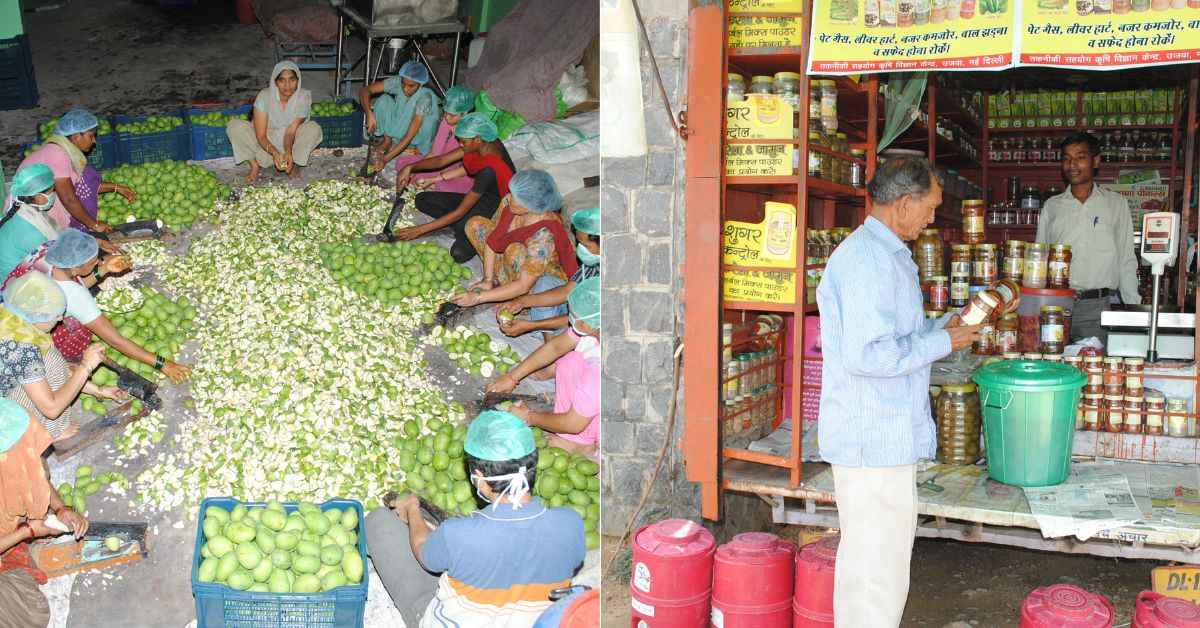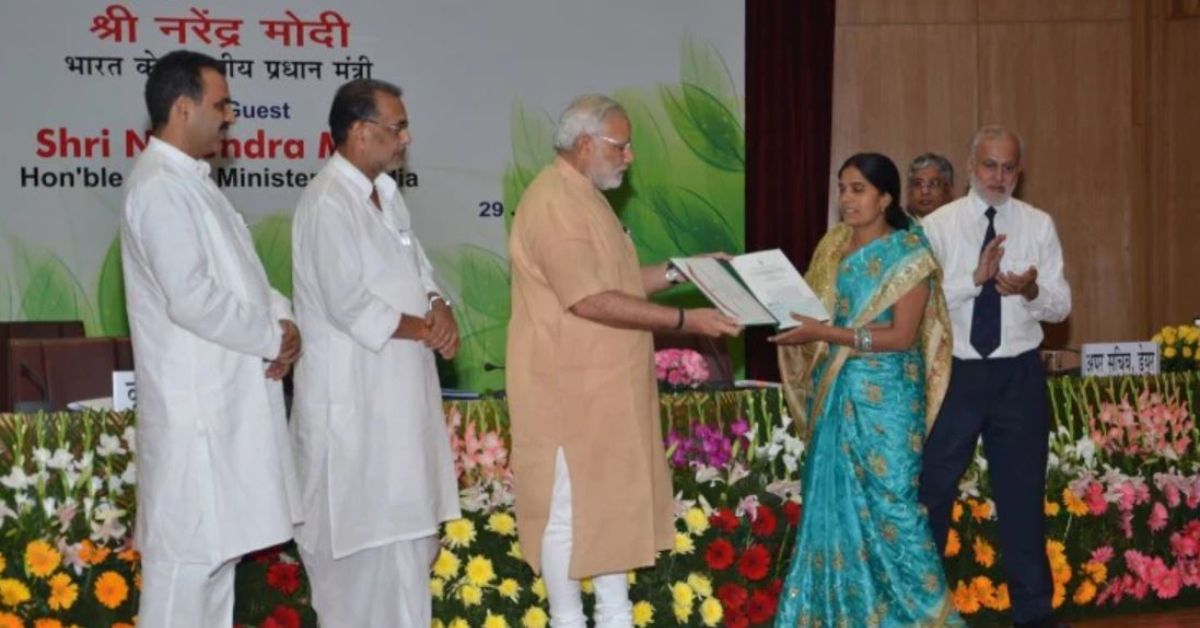In 2014, Krishna Yadav stood before the Prime Minister of India, holding the prestigious N G Ranga Farmer Award for Diversified Agriculture. Her entire life journey flashed before her eyes as she gazed at the award.
Born in the small village of Daulatpur in Uttar Pradesh, Krishna never attended school. After her marriage, she moved to Bulandshahr, where she faced a dire situation when her husband lost his job as a traffic police officer.
“Later, he tried to start a vehicle trading business, but we incurred huge losses. We had to sell our two houses, each spread across 150 gaj (approximately 1,300 sqft). It became increasingly difficult for us to survive. We couldn’t afford to eat vegetables anymore and survived on namak roti (salt and flatbread) for days,” Krishna tells The Better India.
She decided to move to Delhi to her father’s place in search of work. With only Rs 500 in her pocket, she relocated to the city with her husband and their three young children. “I looked for jobs, but without any formal education, I couldn’t find work. My husband also struggled to find employment. After two months, we began working on a field through sharecropping,” she says.
Sharecropping is a legal arrangement where a landowner permits a tenant to cultivate their land, in exchange for a portion of the crops produced. The five-member family began living in a small room on the field. They spent their days cultivating vegetables, but the income from their efforts was insufficient to sustain them. “The price of vegetables in the market would fluctuate and we would hardly earn any profits,” says the 55-year-old.

A turning point came in Krishna’s life when she heard about a training programme on value addition of post-harvest losses through a television programme. She enrolled in a course at Krishi Vigyan Kendra (KVK), where she mastered the art and science of making pickles and murabba (marmalade).
This marked the beginning of a new path for her future.
From Rs 500 to Rs 5 crore empire
Like an enthused student, Krishna would set out to the training centre with post-harvest losses, such as karonda (black currants) from her field, a few spices, salt, and utensils.
“Although I grew up seeing my dadi and nani (grandmothers) make pickles, the know-how that I learnt in the training was insightful. As homemakers, we don’t really calculate the amounts of spices and salt to be added to the pickle. However, I was taught ways to enhance the taste as well as the shelf life of pickles naturally. The key was the measurement of spices and oils,” she shares.
So Krishna started making the pickles, but she had little knowledge of commercialising the products. “We set up a small table on the roadside and put our products on display. It was not a very busy road but we wanted to attract people to our stall. So, we placed two large earthen pots of water along with the pickles. I offered pickles as samples to those who stopped to drink free water,” she says.
This simple yet effective strategy slowly built her customer base. She also started participating in local fairs to promote the products. Over the next few years, the demand for her pickles grew, allowing her to formally launch her company ‘Shri Krishna Pickles’, and eventually open her own factory.
Starting with karonda (black currants), she introduced a variety of pickles, including mangoes, chillies, and lemons. Today, she offers over 250 varieties of pickles, herbal juices, chutneys, marmalades, and syrups.

Nikhil Rohilla, a regular customer for the past decade, says, “Their pickles perfectly capture the essence of homemade goodness, offering a nostalgic taste. Their wide variety of flavours caters to every palate and mood. Whenever I open one of their jars, it bursts with authentic tastes and aromas, enhancing my simple meals. These pickles never disappoint, consistently maintaining their taste and quality over the years.”
Krishna has established a five-storey facility in Delhi, where she manufactures 10 to 20 quintals of pickles daily, and her company boasts an impressive annual turnover of Rs 5 crore.
For her extraordinary determination and entrepreneurial spirit, she has been recognised with multiple awards including the Outstanding Women Award from the National Commission for Women on the occasion of International Women’s Day 2012; the Innovative Award for Agriculture and allied activities during the Global Agriculture Summit 2013; and the prestigious N G Ranga Award 2014.
Looking back at her journey, she says, “I was a homemaker and my core job was to look after the household duties. But I wanted to contribute to the family income in our dire times. I couldn’t let my children face the brunt of our financial crisis. It was a small step, and I never imagined I would come this far.” She adds that her husband and eldest son are involved in the business, while her other two children are currently pursuing their higher education.
“Today, I have both gaadi bangla (a car and a bungalow), and more importantly, the dignity to walk with pride. As a child, I aspired to be on television, and that dream came true with my business. However, achieving this success required consistent hard work. If I were to stop now, I would risk losing everything,” she says.
With her example, Krishna emphasises the transformative power of adversity and the importance of resilience. “Do not be bogged down by failures. Do not view helplessness or failure as a setback but as a stepping stone to greater achievements. If one door closes, many others open,” she remarks.
Edited by Pranita Bhat; All photos: Shri Krishna Pickles.
No comments:
Post a Comment